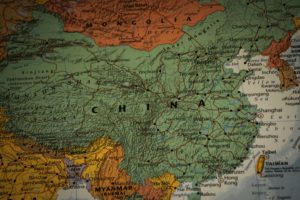MANILA, Philippines — The Department of Justice (DOJ) and the Commission on Human Rights (CHR) have signed a data-sharing agreement (DSA) that would hopefully speed up the resolution of various political attacks and killings.
According to the agencies, the agreement — signed on Wednesday after a virtual ceremony — would help agencies create a more effective investigation and case build-up regarding political killings.
“The present Data Sharing Agreement is necessary considering that we have now the Data Privacy Act. The DSA clearly defines our respective roles, at the same time acknowledges and respects the internal rules of our institutions in the role of data sharing,” CHR Commissioner Leah Tanodra-Armamento said.
“The provisions of this DSA, that we are about to sign today, will further strengthen the cooperation between our institutions to serve the ends of justice and protect human rights,” she added.
For DOJ, information coming in from CHR would also provide state prosecutors and investigators with crucial information about the cases.
The agreement is also a fulfillment of DOJ’s Administrative Order No. 35, which created an inter-agency committee handling alleged extrajudicial killings (EJKs).
“This Data Sharing Agreement with the Commission on Human Rights is an important means for us not only to strengthen the avenues of mutual cooperation between us. More importantly, it will broaden our capacity to gather and receive information crucial in the investigation and prosecution of cases in our docket,” DOJ Undersecretary Markk Perete explained.
“We commit not only to protect the data you will share with us; more importantly, we undertake to use them well against those who undermine and violate the rights that inhere in us as humans,” Perete assured CHR.
Recently, there have been several killings and incidents treated by various groups as allegedly politically-motivated, putting the blame on supposed state actors. Last August, former National Democratic Front of the Philippines peace consultant Randy Echanis and Karapatan paralegal staffer Zara Alvarez were killed within a week.
Echanis, also Anakpawis’ national chairperson, was found dead inside his rented home in Novaliches, Quezon City. While the Quezon City Police District denied any involvement in the attack, Echanis’ relatives and friends claimed that the peasant leader possibly died due to extreme torture.
Meanwhile, Alvarez was gunned down outside her house in Bacolod by unidentified gunmen. According to an international rights group, she was essential in bringing human rights issues plaguing the Negros provinces to the United Nations Human Rights Council.
CHR has been probing both incidents in an independent manner. Data sharing between CHR and DOJ is seen to further accelerate the resolution of both cases.
“This August, composite teams of prosecutors and law enforcement officers (Special Investigation Teams) were immediately formed upon the directive of DOJ Secretary and IAC Chair Menardo Guevarra to investigate the killings of activists Randall Echanis and Zara Alvarez,” CHR said.
“The Agreement will facilitate DOJ and CHR collaboration in bringing perpetrators to justice. AO35 serves as the State mechanism dedicated to resolving cases of political violence such as extrajudicial killings, enforced disappearances, and torture, among other similar grave human rights violations,” it added. [ac]


